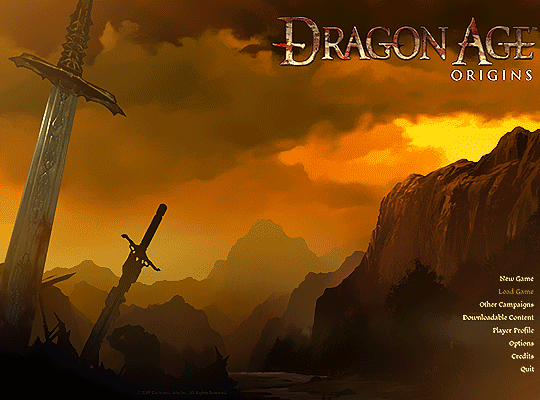Text
we as a society do not explore proxy sex enough………….
8K notes
·
View notes
Text

how’s that house that raised you?
76K notes
·
View notes
Text

beautiful pink woman haunted by two pink freaks
439 notes
·
View notes
Text


sorry, the Fifth Talon is currently occupied uwu
(an edit of two super super indulgent ViaRook pieces to make them a little less nsfw but they are still in fact nsfw lmao)
169 notes
·
View notes
Note
Omg............ is your dick grayson with starfire? Bc they'd look so........................ mh.....................
yessireeee tbh i want to explore starfire's design more in the future :p but for now:

2K notes
·
View notes
Text




batcat challenges you to match their freak, wyd?
3K notes
·
View notes
Text

they say ch 3 is gonna be a real
41K notes
·
View notes
Text




Dragon Age: Origins (2009) Dragon Age II (2011) Dragon Age: Inquisition (2014) Dragon Age: The Veilguard (2024)
3K notes
·
View notes
Text
Get your crumbs up. Get your nothing up.
5K notes
·
View notes
Text






Lucanis and Emmrich about immortality
2K notes
·
View notes
Text

the world gave me teeth and made me scared. i wish you never learned that.
1K notes
·
View notes
Text

its filling up your head!!!
11K notes
·
View notes
Text
thinking about how deeply lucanis' life has been defined by a lack of control of that life -- as he himself points out, even before the ossuary went and carved the headline out again with big bloody letters. of course he reacts badly to losing what little control he did manage to construct for himself even within those circumstances.
(namely: experience has taught him that things (caterina, loss, pain, love, all horribly and indelibly intermingled) will happen to him whether he wants them to or not and there's nothing he can do about that... but he gets to decide what's let in or out of his soul as it happens, even if he has to close it all down and deaden and numb himself out in the process. (even if that means he drifts further and further away from illario, who's been desperately reaching out and trying to keep hold of him until he finally gives up completely and tries to cut the bond all at once when lucanis doesn't seem to reach back anymore.) it's such rare well-observed freeze logic solidly constructed from the bottom up, I'm still so impressed with it.
the way illario seeks constant external means to cope with caterina's abuse and importance in his life -- he can't win her admiration or acceptance or warmth (or like. acknowledgement even, at times :') ), no matter what, so he goes out and finds those things in others and then disdains and dismisses it for how easily and falsely it's won from them. he plots, he conspires, he tries to beat her at her own game however clumsily, he tries. lucanis doesn't try things that way. he's not about 'how do I improve my situation' by nature, he's 'how can I stop this from getting worse'. he avoids, he internalizes, he hunkers down and makes himself nothing until the pain maybe ends. he's fundamentally not a plotter, he's a reacter. an expert assassin pantser, if you will, to illario's clear and stated exasperation fhsak. man I love them. illario says 'get us out of here!!! if you loved me as I love you you'd help me get us out of here before it kills us both', lucanis says 'there is no other place, there's nowhere to go, all we can do is endure. and if it kills us... well, that's just family. that's what love is (the way things are headed I'll die first anyway so it's fine I won't have to face losing you)', and they're equally baffled and hurt by each other's POV. but they're both right, and they're both wrong. there's no 'right' way to deal with caterina's treatment of them, or their situation. the house always wins, if you pardon the expression. house dellamorte still stands and that is what matters to caterina in the end more than anything.
it also fits so well b/c like... their core wounds are that illario is the least favourite and is constantly dismissed, so he has to prove to caterina again and again that he matters. not even that he's worth love or respect or warm regard, but that he's here at all and as such should be considered. he has to shout 'in case u forgot I EXIST!!' at the top of his lungs or else be rendered nothing within the family structure (and himself, because it's all about family, that's all that really matters. in some weird twisted way I think caterina openly declaring him before all the other crows to still be of house dellamorte -- and no one from house dellamorte kneels -- is kind of a victory for him, as much as it's also a furthering of a prison sentence and public humiliation. house dellamorte brainfuckery goes hard.). lucanis is the favourite, and it's the double-edged sword that he gets all the affection and attention but also all the control and impossible expectations. drowning under all of that constant stress and close evaluation, his brain whispers 'I don't exist' to try to escape, to hide and hold on to the deep parts of himself that are crucial to life but not part of the perfect grandson caterina demands of him as the price of her love.)
I think a lot about how what seems to disquiet lucanis the most post-ossuary (as it would anyone with that psychological makeup) is the dissolving of internal boundaries and control he's been relying on, which is part of what spite symbolizes. his anger and reactivity has seceded from the union to the point of personification as a little guy (a little guy he resents and fears for his unpredictability and invasions into regions of his psyche he wishes to stay frozen and barren, and yet cares about deeply, loves! and also constantly dismisses and frequently helplessly lets down unless he's helped to learn to do otherwise. does this remind you of another relationship in his life, perhaps. it makes me feel nuts to think about the illario/spite parallels thanks for asking), and now that little guy is out there running the show freely the moment he glances away or closes his eyes. literal nightmare scenario I feel for him so deeply. so much of his coping is predicated on being able to Not do or feel or want certain things, and that's out the window now, Spite has Opinions. Spite refuses to stay wisely in place even if that place is hell on the logic that if you move you could find yourself in a place that's even worse, somehow. Spite actually wants to experience the world, however fucked up and scarring the way he arrived here, not just endure it. Spite means he has to face that maybe illario wasn't wrong all those years, at the same time as having to admit and face what illario has done to him, and figure out what to do about any of it.
anyway. mary kirby ma'am that's some good fucking metaphor work. thank you, and sorry about all the shit that happened
#fav#tumblr user vaguely-concerned you’ve done it again#I’ll NEVER be over those damn Dellamortes!! FUCK!!!!! n#dragon age
188 notes
·
View notes
Text
[sits bolt upright] Davrin should have been given the option to make another old god baby
4 notes
·
View notes
Text

This was on @whatareyoureallyafraidof's post where they put up this:

And I responded with this image:

and promised in the tags to elaborate if asked. And, @frodo-the-weeb, I will. But it's going to get long and I'm going to have to split it up into several reblogs.
First of all, since not everybody in the world is a Silmarillion enthusiast, let me explain what we're referring to.
One of the stories in the Silmarillion, and possibly the one Tolkien cared about the most, is the tale of Lúthien and Beren; a highly condensed version of a narrative poem called the Lay of Leithian, which Tolkien began writing in the 1930s and tried to get his publisher interested in after the success of The Hobbit.
(Their readers said no, and they tactfully asked him to focus on his Hobbit sequel instead. "The result," in Tolkien's own words, "was The Lord of the Rings.")
The skeleton of The Lay of Leithian is as follows; I'm intentionally leaving out a bunch of information that weaves it into the overarching story of the Silmarillion but isn't relevant to the thesis I'm advancing here.
Lúthien, an Elven princess and enchantress, falls in love with a mortal man, a ranger called Beren. Her father, the Elven King Thingol, disapproves and sends him Beren off to fetch one of the jewels from the crown of the Dark Lord Morgoth. Lúthien tries to join Beren but her father imprisons her in a tower to stop her, only it's actually a treehouse because they're forest elves. Lúthien magically grows her hair long and uses it to escape. By the time she catches up with Beren he is chained in the dungeons of Morgoth's second-in-command, Thû (whom Tolkien later renamed Sauron). She rescues him with the help only of a dog, who defeats Thû himself in single combat. They then live in the forest together for quite some time, but Beren feels bad about being the reason she can't go home to her family, and still intends to finish his mission and get the jewel. He leaves one morning while she's still asleep, so as not to put her in danger, and then when he's on the threshold of Morgoth's underground fortress in the far North of Middle-Earth she catches up with him again and he accepts that she's not going to be put off. Together they enter Morgoth's fortress and make their way to his throne room. They are in disguise but Morgoth is not fooled and uncovers Lúthien in front of everyone, declaring his intention to make her one of his many slaves. Lúthien offers to sing and dance for him, which is the way she works her magic. She puts everyone in the throne room to sleep, including both Beren and eventually Morgoth. She wakes Beren and he takes the jewel and they flee, but as they get to the outer door they are stopped by Morgoth's guard-wolf, who bites off Beren's hand holding the jewel.
That's as far as Tolkien ever got with the poem, but we have the synopsis in the prose Silmarillion to tell us the rest of the story; again cutting it down to the quick, Thingol accepts Beren as his son-in-law, Morgoth's guard-wolf attacks Doriath, Beren goes and hunts it but is mortally wounded, his spirit goes to the Halls of Waiting in the Undying Lands where the dead in Middle-Earth go, Lúthien also goes there and, again through her magical song, persuades Mandos the god of the dead to let him come back. Mandos offers her a choice: live on immortally as an Elf without Beren, or return to Middle-Earth with Beren but both of them will grow old and die. She chooses the latter.
Tolkien created Lúthien as a portrait of his wife Edith, which makes Beren a picture of himself. We know this for a fact because he had LUTHIEN written on her grave when she died, and when he joined her in it two years later the name BEREN was written for him:

Now on the lower right side of my response image you'll see Pauline Baynes' illustration of the Lady in the Green Kirtle from The Silver Chair, one of C. S. Lewis's Narnia stories. A quick synopsis of the Lady of the Green Kirtle's part in the story:
The Lady is a witch who rules a gloomy kingdom underneath Narnia, accessible through a fissure in the earth in an old ruined city far to the North. Before the story opens she has enspelled and kidnapped King Caspian's son Prince Rilian, whom she intends to send leading an army to conquer Narnia in her name. For twenty-three hours a day he is her willing slave and lap-dog; to maintain the spell, he must be bound to the titular silver chair for the remaining hour, during which he is sane and aware of his imprisonment. The protagonists, Eustace and Jill and their guide Puddleglum, meet her and Rilian unawares on their journey to the North; she sends them astray and almost succeeds in getting them eaten by giants. Eventually they rescue Rilian from the chair, but she sings a magical song which very nearly puts them all to sleep but for Puddleglum's intervention. Foiled, she transforms into a serpent, attacks them, and they kill her.
It is my contention that the Lady in the Green Kirtle is Lewis's caricature of Lúthien, with the enslaved and befuddled Prince Rilian representing Beren; and further, that Lewis knew or recognised that Lúthien and Beren were a literary portrait of the Tolkiens, so that The Silver Chair is ultimately a nasty commentary on their marriage.
In forthcoming reblogs I will lay out my evidence for this thesis.
6K notes
·
View notes

